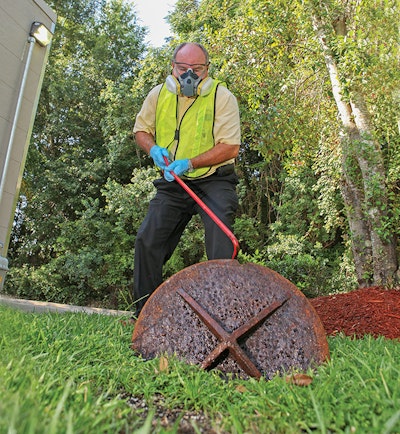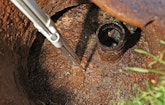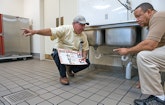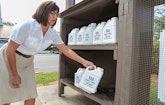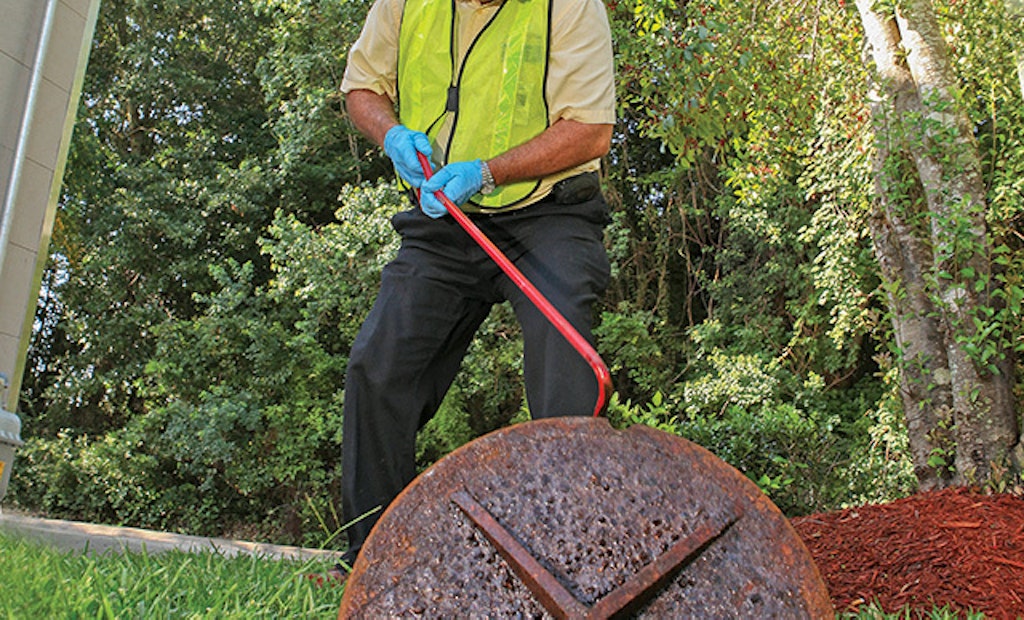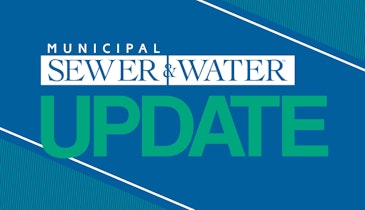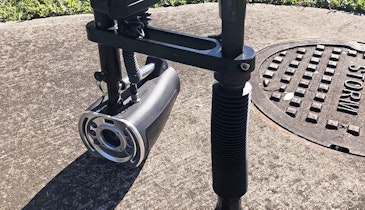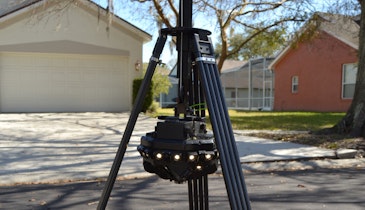Interested in Cleaning?
Get Cleaning articles, news and videos right in your inbox! Sign up now.
Cleaning + Get AlertsIn the 1990s, the Town of Daphne, Ala., had one of the state's worst environmental records. Sanitary sewer overflows were a common occurrence, resulting in expensive, time-consuming cleanup efforts and a lawsuit filed by the local district attorney. For the last six years, Daphne has transformed its sewer and water operations using a performance-driven business model that has resulted in cleaner sewer lines, satisfied customers, great cost savings and an Award of Excellence from the U.S. Environmental Protection Agency.
Rob McElroy, general manager, was brought in to turn around the Daphne utility in 2005. With his background in private sector management, McElroy changed the utility's philosophy on how to operate the organization, including better ways to work with employees and customers.
Better than "good enough"
The utility's new approach to doing business required some time for people to understand and accept. "The phrase 'good enough for government work' angers me every time I hear it because it represents waste and inefficiency," McElroy says. "We have to work hard to overcome that. There was a time when being 'good enough' might have been good enough, but that time has gone. In a downturned economy, our customers don't have the money to fund regular rate increases for what they perceive as poor service from uncaring employees and the inefficient use of the money already given to us. We want to bring more efficiency into our system, to run like a business."
The lawsuit from the DA required upgrades to the wastewater treatment and collection systems. However, the city had financial limitations because utility rates had not been raised in 10 years. Without proper funding, the utility struggled with an aging system installed in the 1970s. Without the funds to do proactive maintenance, they could only clean up spills after they occurred.
"We were reverting to a 'wait until it breaks' mentality. Waiting until something breaks isn't maintenance," McElroy says. "Trying to run a utility as cheaply as possible every day is the most expensive way to run in the long run. What we needed to do was figure out why the overflows were happening and stop them before they happened. That was a big paradigm shift on how to approach the problem going forward."
Using honey instead of vinegar
Working directly with restaurants and commercial kitchens proved to be the fastest way to reduce the frequent sewer overflows. Daphne, a bedroom community for Mobile, has only 11,000 households, but more than 100 restaurants, mostly clumped together in a region nicknamed "Hamburger Alley." It is in this area where most of the sewer blockages appeared to occur.
Instead of using a heavy-handed approach to stop restaurants from improperly disposing fats, oils and greases, Daphne hired a code en-forcement officer to take a positive approach with business owners. Other utilities that McElroy spoke to said they used a harsh approach with violators, sometimes cutting off water supply until restaurants would comply. Daphne's team wanted to create partnerships with the restaurants to work positively to solve the problem. Rather than see the situation as an enforcement problem, the utility appealed to each owner's interest to protect their restaurants from sewer spills and associated costs.
"We didn't require them to install grease traps and do whatever we tell them to do. We told them that the first restaurant we want to save from a sewer spill is theirs," McElroy says. "We offered to help them find the solution that's the most cost-effective to implement, such as using paper plates or not frying as much food. We let them know that they can control what they need to do and how much it costs them."
During their visits, the code enforcement officer was sometimes able to help restaurants find ways to lower costs. For example, the code enforcement officer found that several restaurants were having their grease traps pumped more often than necessary. By pumping less often and monitoring the traps, the restaurants could cut pumping costs by a half or one-third. Working with customers to lower their costs, provide good service and talk about the values the utility can offer has proven to be a good way to promote Daphne's sewer and water department.
"We extended an olive branch first to show we want them to be prosperous. We want all our customers to be successful because a successful business pays its water bill on time," McElroy says.
Good kitchen practices
Rex Rentz, code enforcement officer, targets restaurant managers for an educational program on good kitchen practices. Training sessions and a training DVD show managers the best way to handle oil and grease in commercial kitchens. He regularly checks with employees to make sure they are handling fats, oils and greases properly in their areas.
"We work with them positively and calmly, and we assume people are trying to do the right thing. If they aren't, we will put them under a monitoring schedule. It's just a matter of education," Rentz says. "We haven't written a fine since 2006. It's not about forced compliance, it's about building relationships. The last thing we want is for a sewer spill to happen in a restaurant and the Board of Health to shut it down. The code enforcement effort is one way we help people stay in business and keep them profitable."
11,000 teaspoons of oil
Commercial kitchens aren't the only contributors to fats, oils and grease in the sewer system. Residential customers are believed to be the biggest contributors to sewer blockages, but the utility knew it could not force a change in behavior. To motivate change, the utility wanted to show customers what they can do to help on their own terms.
As an alternative to pouring cooking oil down the sink or toilet, Daphne began a used oil recycling program in 2004. Residents can bring their cooking oil to conveniently located collection areas. Further consumer education has also contributed to reducing grease buildup in the lines. McElroy's team spoke with community groups and individuals about making small changes in the home. For example, using a paper plate to wipe off extra grease instead of rinsing it down the drain can have a beneficial impact on the sewer system.
"If each home adds a teaspoon of grease down the sink every day, it adds up to seven 55-gallon drums of oil entering the sewer system every month," McElroy says. "If you saw someone pouring seven 55-gallon drums into a manhole, you would call the police because you'd be witnessing an environmental crime. It's the same thing."
Daphne's public outreach programs garnered a Consumer Confidence Reporting Excellence Award from the U.S. EPA in 2011.
Oil for fuel
Since starting the code enforcement outreach and oil recycling program in 2006, Daphne has seen sewer spills and grease blockages cut in half, resulting in significant cost savings. In the past, Daphne spent as much as $20,000 to $30,000 for each sewer spill cleanup at a restaurant or home. Even a simple cleanup like a manhole burping sewage onto a street could cost $5,000 to $10,000. To combat this, the utility deploys a wide range of equipment to address FOG issues in the collection system including Vactor vacuum trucks and the Sludge Judge (Nasco) to test grease traps in the field. Sewage overflows that once happened several times per month are now a rare occasion and require cleanup on a much smaller scale. The U.S. EPA recognized Daphne's efforts to limit sewer spills with a Gulf Guardian Award in 2011.
Today, the utility collects about 400 gallons of used oil each month and, in 2006, began converting this oil into biodiesel fuel. The biodiesel is used by the code enforcement truck, as well as other utility vehicles, heavy equipment and a backup generator at the wastewater treatment plant. Since the biodiesel is manufactured for only $1 per gallon, this saves the utility about $8,000 to $10,000 in fuel costs each year.
Promoting the use of biodiesel has also grabbed residents' attention and encouraged more people to participate in the oil recycling program.
Improving staff efficiency
Since there are fewer sewer overflows, there is no longer a need for a heavily staffed department to handle emergencies. In the event of a spill, the team can pull employees from other departments to aid in the cleanup. By teaming up and working together, the utility has reduced its staff by 14 percent over the last 5 years without a single layoff, saving more than $1 million in labor and benefits over that timeframe.
"Our motto is that we are 'One Utility.' We aren't just a bunch of people with the same logos on our shirts. We work together among the departments," McElroy says.
Cross-training between the trades has become a common occurrence in Daphne. It gives employees a chance to experience different responsibilities and learn from one another. It also prevents a single person from having sole knowledge of a critical task.
"Having a single person as the only one who can do a critical task is dangerous," McElroy says. "I don't want any critical task with only one person who knows how to do that. We constantly cross-train people."
Staff cross-training involves more than just learning a technical skill. It also can involve moving people into short-term supervisory positions so they can test out their skills and see if they enjoy it before moving back to their previous jobs. These short-term moves allow managers to figure out areas where people are best qualified so they can succeed. Plus, it's a chance for people to share knowledge across different departments, which can lead to better communication across the entire group.
"We have taken supervisors from the wastewater treatment plant and put them on a wastewater collection job, and vice versa. Both of those teams will learn something from the other. It's about sharing knowledge," McElroy says.
Turning to I&I
With sewage overflows now under control, Daphne is turning its attention to inflow and infiltration (I&I) investigation as a way to continue improving efficiency. By monitoring their Mission Communications SCADA system, combined with simple Excel spreadsheet data readouts, I&I issues have become easier to locate and address.
This effort, led by operations manager Danny Lyndall, conducts daily checks on the SCADA for 76 lift stations. Monitoring pump run times and tracking trends during rain events helps determine if there are line leakages somewhere upstream of a lift station.
"Previously, we used our lift station SCADA as just an alarm," Lyndall says. "Now we use the data to make operational determinations in the field. Reviewing pump run times, looking for trends in run times, determining if there are problems, comparing run times with rainfall data and comparing the rainfall data with the collection basins throughout the city to see if run time increases during rains."
Based on the data, the team may target field remedies such as replacing missing cleanout caps, raising manholes that become submerged in low lying areas or making other line repairs.
In spring 2012, data indicated that some of Daphne's lift stations couldn't keep up in rainfall events. Initially, the utility considered investing in larger pumps to handle the volume. However, the team changed its way of thinking and instead used I&I investigation to stop the rain from getting to the lift station in the first place.
